The following article addresses fear of flying in children and how best to help your child manage his or her anxiety during this stressful situation.
About the Author
Suzanne Duke is a doctoral-level developmental psychologist who began her career working with young children and then with university students, particularly helping first-year students adjust to college life and living away from home. She is also a social worker and particularly enjoys treating anxiety disorders, such as fear of flying!
In the fear of flying series so far, we have looked at the prevalence of aviophobia – fear of flying that meets the clinical level – in adults and how those afflicted with it can best deal with their fears. However, the data used to support those articles has been focused on adult aviophobia and has mostly excluded subjects under 18 years of age. In addition, the recommendations I have made to try to help nervous flyers become less anxious have also been most appropriate for adults. Such a distinction is important because even though some of the coping mechanisms to manage fear of flying may end up being applicable to children – such as engaging in distracting activities or helping reduce catastrophic thoughts about air incidents, children have extremely different ways of conceptualizing these mechanisms. In addition, children’s ability to understand and employ such mechanisms is constantly evolving due to the mere fact that as children age, so does their facility with managing complex cognitive and emotional “tasks”.
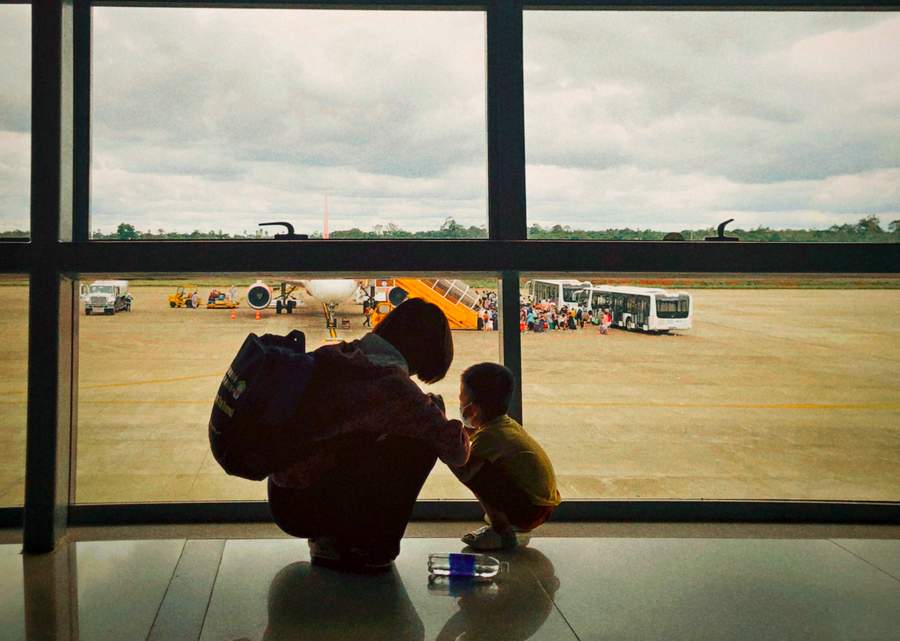
A significant challenge in exploring the issue of childhood aviophobia is the mere lack of data supporting such a diagnosis. As of the writing of this article, such data are so sparse that I, as a developmental psychologist by training, have been unable to find a peer-reviewed, published scientific study examining the prevalence of aviophobia in children (defined as those under 18 years of age) and how it may manifest itself clinically. The closest group of studies in the child psychology literature are studies looking at phobias related to fear of flying, such as claustrophobia and fear of heights. That said, this article will draw upon both my knowledge and experience as a developmentalist as well as the adult data that are available regarding fear of flying. I will talk about how fear of flying may present in each age range, starting from youngest children to late adolescence, and how parents can help support children in the applicable age group.
YOUNGEST CHILDREN/SCHOOL-AGED CHILDREN
Fear of flying in children is likely to develop no earlier than toddlerhood (ages 2-4.5 years of age), a time during which children become aware of their surroundings and interested in the world and the people in it. As Jean Piaget, sometimes termed the “father of developmental psychology”, described young children as “little scientists”, given that they will engage all their senses to explore the environment around them and try to make sense of what they find. This is exciting for young children, but understandably, being on an airplane may be disconcerting for a number of reasons. Flight anxiety at this age is most likely about upsetting or scary sights and sounds or possibly the discomfort in the pressure changes in their ears during take-off and landing. In general, children at this age are not cognitively sophisticated enough to specifically be afraid of flying because they see it as dangerous – most likely, they find the environment of an airplane somewhat unfamiliar, overwhelming, and hostile to their senses.
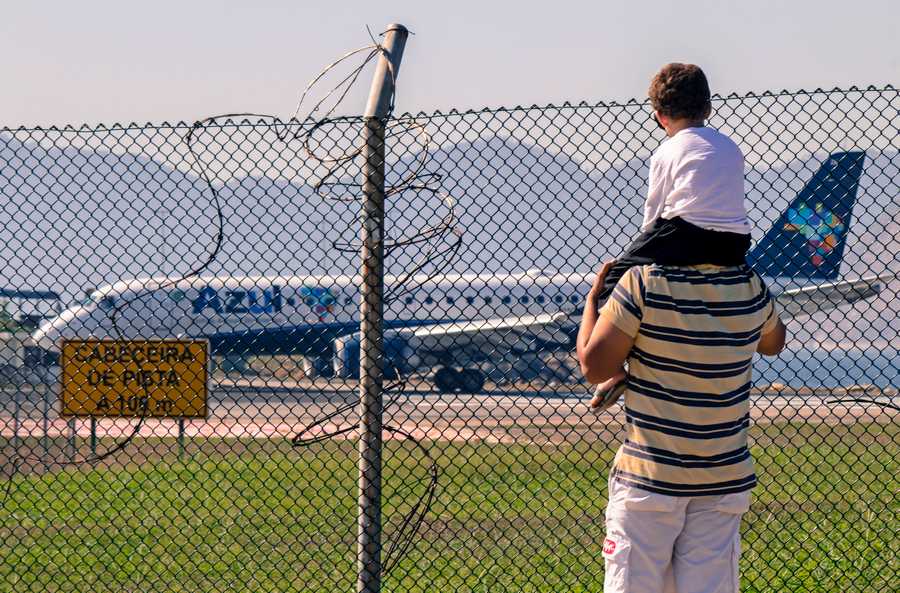
To be helpful to your very young child, remember that children at this age like learning new things and like doing things for themselves (like picking their own snacks from options you provide for them or attempting to buckle their own seatbelt – which, of course, should them be checked by an adult!) Thus, here are some ways you can help reduce flight anxiety:
- Before the flight, talk with your young child about what airplanes are like and the “interesting sights” and sounds they may experience
- There are a number of children’s books about flying that explain the general aviation experience in a clear, child-friendly way. These could be especially useful as you do your best to make flying “fun” instead of scary. Just a few of these books are, My First Airplane Ride (Patricia Hubell), Going on an Airplane (Amy Pittman), and a classic, A Day at the Airport (Richard Scarry)
Fear of flying in pre-adolescent school-aged children (approximately ages 6-10 or 11) may start to be more centered around potential danger, as opposed to simply being unfamiliar with airplanes. This is the time when trying to understand the genesis of your child’s fear is really important, as doing so will determine your response. For example, is your child actually describing claustrophobia, as is common in many adults’ fear of flying? If so, you might want to point out all the exits on the plane and then talk specifically about the exit nearest your seats and the best way to get there. In this situation, I would talk about the exits and the best path to them as generally informational; that is, creating a scenario for your children with an imagined “air disaster” and you are all running for the exit is likely just going to scare your child unnecessarily.
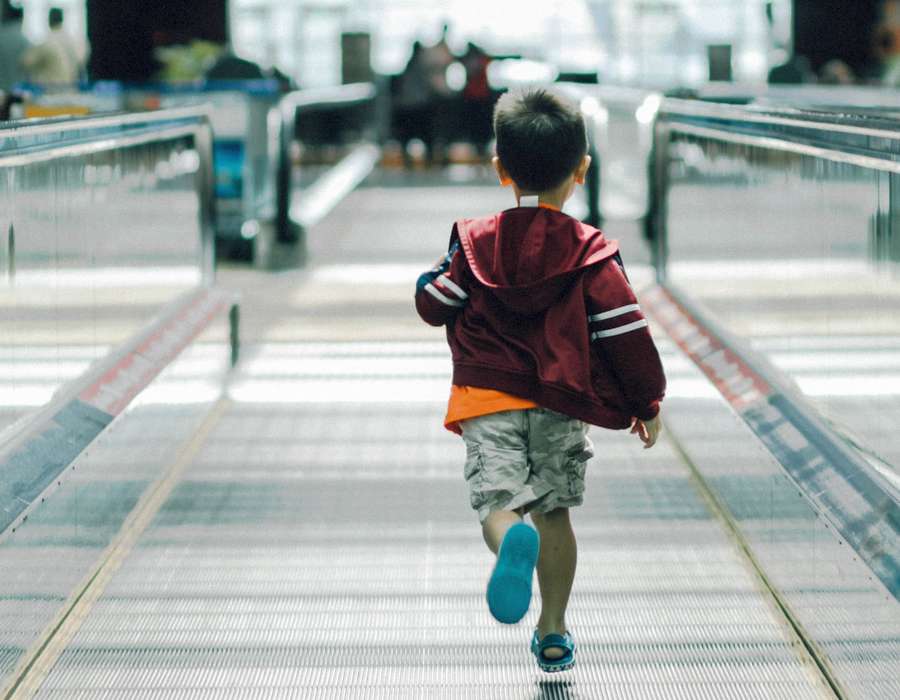
Another highly significant factor in the development of flight anxiety in pre-adolescent children is their exposure to media and the likelihood they have heard about air accidents through various media outlets. Such exposure can be very scary for young children, who are able to absorb the general facts but the nuances of air incidents and accidents, but they are very much able to absorb the negative emotions around this coverage, such as sadness, fear, chaos, etc. Media coverage can be upsetting for adults who have the ability to run it through their much more developed minds, so it is significantly more upsetting to children.
To help your pre-adolescent child deal with flight anxiety, here are some following suggestions:
- As mentioned above, talk with your child about their fears and use the data generated from these conversations to determine your response. We have discussed claustrophobia, but another issue can be loss of control (similar to flying fears in adults). In this case, maybe allow your child to help pick your seats (if that is an option available to you), which will give your child a sense of control back.
- Limit media coverage of air incidents and accidents, and if your child is exposed to such media, talk with them about what was seen and what it might mean. Since this is an age where children have developed basic mathematical reasoning, you can start to talk about how safe air travel is. In such a conversation, though, I would stay away from statistics about air travel and talk specifically about the features of a plane, such as redundancy built into its systems, that make planes particularly safe.
- Focus on the positive. Talk about all the fun things you are going to do when you reach your destination, or even just find ways to lighten the mood for your children. For example, you could engage your child in a (quiet!) game of “I Spy” or other travel games you might play if you were in a car.
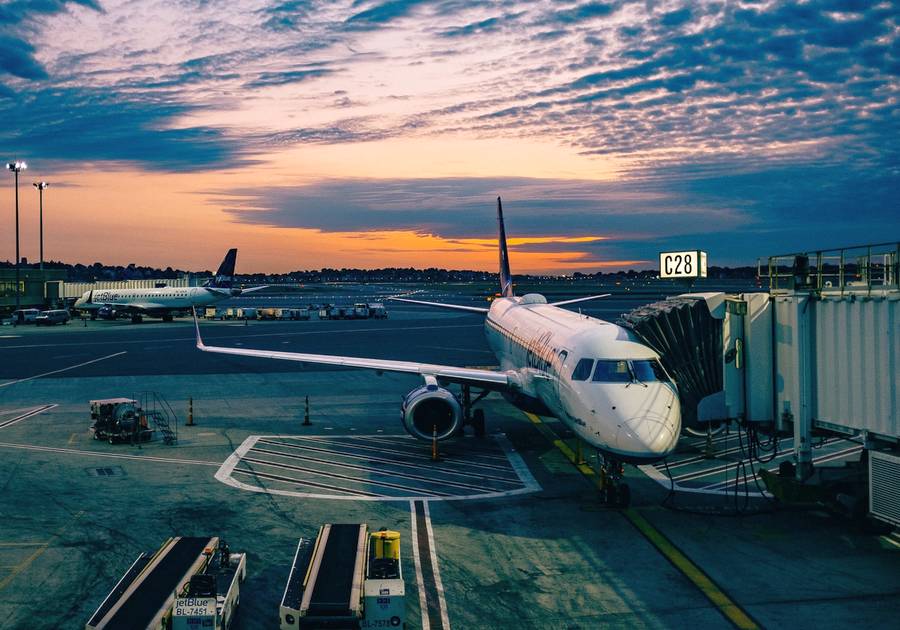
OLDER CHILDREN (12+)
Because older children have reached an age where they have the capacity for abstract thought, fear of flying in older children presents more like flight anxiety in adults. Older children are much more capable of understanding concerning issues that get raised in the media regarding aviation, and they may also have more fully developed co-existing fears that accompany flight anxiety such as claustrophobia, fear of loss of control, and fear of heights. Therefore, many of the same coping mechanisms that apply to adults are effective in children. If your older child expresses fear of flying, the following responses may help:
- Having a more detailed conversation than you would with a younger child about the relative safety of airplane travel. In this conversation, you might mention the statistics indicating how uncommon air accidents actually are, but do not perseverate over statistics. Focusing too much on statistical safety can actually have a paradoxical effect in how it might make your child feel. That is, while you may believe you are convincing your child how safe airline travel actually is, a focus on statistics can actually feel patronizing and disheartening when your child realizes that “in spite of how safe” airline travel actually is, s/he is still afraid. (Notably, this over-reliance on statistical safety can also be problematic for adults with flight anxiety, which is why statistics have a place in a conversation about fear of flying, but it probably should not be the focus.)
- Distraction, distraction, distraction: Just as with adults with flight anxiety, distraction is an excellent tool to help your older child through a flight. These days, distraction on a plane is hard NOT to find – even if your child were to forget to pack any electronic devices or books, the airplane almost always has an in-flight entertainment system. A conversation about what to bring on the plane as a distraction also opens the door for a more detailed conversation about fear of flying and how you, as a parent, can be helpful.
For additional examples of how to help older children manage their fear of flying, many of the same suggestions raised in my earlier articles about managing flight anxiety in adults are likely applicable.
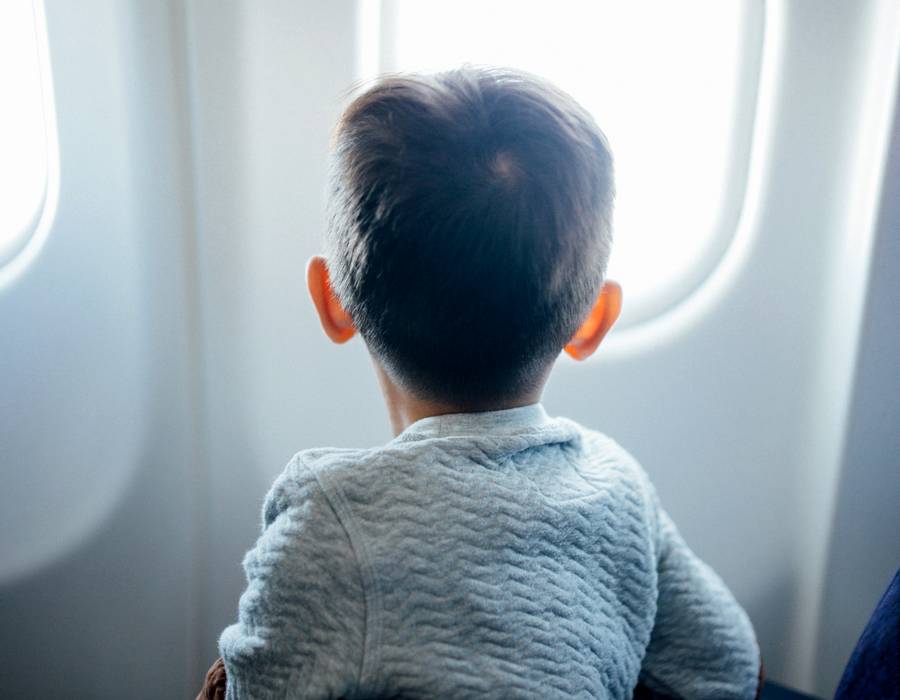
ISSUES RELEVANT TO CHILDREN OF ALL AGES
Finally, I want to mention two issues that are relevant to children of any age who is starting to display a fear of flying. First, it is crucial to try to gauge how serious your child’s anxiety actually is, particularly if your child already struggles with anxiety. Just like in adults and as discussed in my article “What Exactly IS Aviphobia?”, clinically aviophobia is not actually about fear of flying per se but a struggle with the anticipation of feeling profoundly afraid. If your child’s fear seems truly out of proportion to what we might expect from a child about to fly – basic fears like the general unfamiliarity with air travel or fear of turbulence, I strongly urge you to consult your pediatrician, school counselor, or to reach out to a local clinician who treats childhood anxiety.
The second issue is, admittedly, a difficult one. Children, even at extremely young ages, are highly aware of emotions in their caregivers. If you, as the parent or main caregiver of a child afraid of flying, are also afraid of flying, it is likely your child will notice your discomfort. I say this with no judgment or blame – I am extremely aware of how hard it is to fly with a child when you yourself are afraid – but I do want to be clear on the developmental reality. If you are deeply fearful of flying and have another adult who can sit with your younger child, that would be ideal. But I know that most parents are the main caregiver and need to sit with their fearful child. All I can say is that I have deep compassion for how difficult this situation is, and in the end, simply do your best. Parents are not perfect, and perhaps instead of your goal being to seem completely fearless, you choose to be as fearless as is doable for you. It may be “emotionally messy”, but so is parenthood.
I hope this information was useful to you, and as always, please feel free to leave a comment below if you have specific thoughts or suggestions that might be helpful to other people. And as usual, if you would prefer to contact me over email, I welcome your thoughts at [email protected].
Previous articles in this series:
- 5 Strategies To Decrease Your Flight Anxiety
- What Exactly IS Aviophobia?
- How and Why Do People Develop a Fear of Flying?
- The Best Ways To Treat Your Fear of Flying?
- Use Medications, Alcohol to Control Flight Anxiety?



